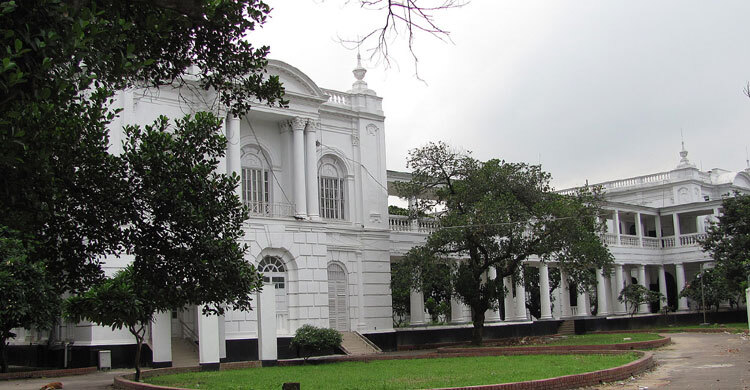Hasina regime’s mass killings: Jurists debate trial in ICT

Six complaints have been filed with the International Crimes Tribunal (ICT) regarding killings during the July-August anti-discrimination student movement, and another one regarding the murders of Hefazat-e-Islam activists at Shapla Chattar on May 5, 2013.
The complaints, filed by the families of the victims, have sparked a debate on whether these incidents can be prosecuted under the existing ICT framework.
The International Crimes Tribunal was established by the Awami League government to prosecute crimes against humanity committed during the 1971 Liberation War.
High-profile figures, including top Jamaat-BNP leaders, have been tried and convicted by this tribunal. Now, demands have arisen to prosecute former Prime Minister Sheikh Hasina, members of her cabinet, law enforcement officials, and the Awami League as an organisation for their alleged involvement in the mass killings.
Ataur Rahman, Deputy Director (Administration) of the ICT's Investigation Agency, confirmed to Jago News that all seven cases are currently under investigation. Once the investigations are complete, the cases will be forwarded to the ICT for prosecution.
Legal experts are divided on whether the ICT can prosecute these killings. Some argue that the existing law covers all crimes against humanity, allowing those involved in the killings to be brought to justice. Others believe the law needs to be amended to address the new charges.
In a press conference on August 14, the interim government’s adviser for law, justice, and parliamentary affairs, Professor Asif Nazrul, acknowledged the complexity of the issue.
He said that student organisations, human rights groups, and various community groups have called for these incidents to be prosecuted as crimes against humanity.
Legal perspectives
Supreme Court lawyer Manzil Morshed, President of the Human Rights and Peace for Bangladesh (HRPB), commented on the accusations against Sheikh Hasina and others, saying, "The law allows for any case related to crimes against humanity to be tried. However, it must be clearly proven who was involved. Simply filing a complaint is not enough to secure a conviction."
Another legal expert, who wished to remain anonymous, argued that the ICT Act of 1973 was specifically designed to address crimes committed during the 1971 Liberation War. He suggested that prosecuting Awami League leaders under the current law would require some amendments.
Supreme Court lawyer Barrister Fakhrul Islam believes that the actions of the ousted government, including the May 5, 2013 Hefazat massacre at Shapla Chattar, could be classified as genocide.
He said, "If a government uses force to eliminate a group, it constitutes genocide, and such acts can be prosecuted by the ICT."
When asked whether the charges related to the killing of student movement participants could be tried in the International Crimes Tribunal, Additional Attorney General Barrister Anik R Haque told Jago News, "I have not yet seen the complaint filed with the ICT. The complaint is currently with the investigative body, and we have no direct involvement with it at this stage."
He further explained, "The existing law is not only for prosecuting crimes against humanity committed by the Razakars during the Liberation War of 1971 but can also apply to any act of genocide or crimes against humanity if it can be shown that such acts were ordered or carried out systematically. Since it is called the International Crimes Tribunal, any complaint filed within the scope of the law must be investigated and, if substantiated, prosecuted."
Regarding the current status of the ICT, following the resignation of its prosecution team and the retirement of its chairman, Barrister Haque mentioned that "a new chairman may be appointed soon, and the prosecution team will be fully reconstituted."
Supreme Court lawyer Advocate Md Tajul Islam commented, "The allegations against the former prime minister and her government involve issues of international law. Orders to 'shoot on sight' could amount to genocide."
Rana Dashgupta, a former prosecutor at the ICT, remarked, "Those who filed the complaint against Sheikh Hasina did so with full awareness. I prefer not to comment further on this matter."
Advocate Syed Mamun Mahbub, General Secretary of the Constitution Preservation Committee of the Supreme Court Bar Association, argued, "There is no need to amend the existing law; it is sufficient for the trial. However, the Awami League government has politicised the tribunal. Reforms are necessary to appoint impartial, qualified, and courageous judges. Integrity should be prioritised above all else."
Gazi MH Tamim, the lawyer who filed the complaint, stated, "Genocide, as defined in Section 2(3)(c) of the ICT Act, includes the systematic killing or mental torture of a specific group. The victims across the country were supporters of the anti-discrimination student movement, targeted and killed, which qualifies as genocide. According to this law, Sheikh Hasina and others accused can indeed be brought to justice."

